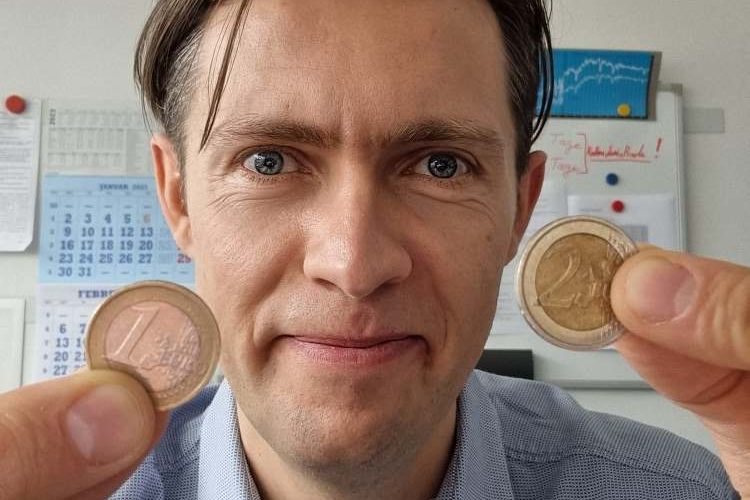How to improve health – why don’t you have the health you want? (part 3)
Hi there, grab a tea, or a coffee, find a nice spot, and make yourself comfortable, because … the story continues. This time is about how to improve health.
As you’ve already noticed, I’ve always given you a day between articles to delve more profoundly because the volume of valuable information has been so great.
Once my client understood where he stood in his financial area, he made the changes and achieved his desired results. This fact motivated him to know more, and he asked how it was in other areas of life.
Today I will continue with the next article and describe another essential area of our lives: how to improve health. To understand the big picture, I invite you to read the first two articles on money and love. After comprehending all these, I will give you the powerful NLP method to get the desired results.
Let’s begin: we all start from a place, and depending on our environment, habits, thoughts, and emotions, we end up in different positions.
Did you know that Barack Obama ended his political career at 55, and Donald Trump began his at 70? That’s how it is with us. Age doesn’t matter if you think, feel, and do the right things. I remember being 30 and feeling so tired and aged, and now at 40, I feel extremely young and full of vitality.
As you rightly surmised, it’s all about the way you think. Just like in the areas of finance and love, there are also 4 levels in health:
- sick;
- healed;
- healthy;
- full of life, vigor, and vitality.
Let me start by describing these levels according to your attitude:
- The sick person has a victim attitude. He wants the attention of others and manipulates them through victimization. This person does not want to know how to improve health because he has a lot to win because of his condition.
- The cured, the held one – is a person who only occasionally uses the illness to get attention. Still, they believe they are at the mercy of fate.
- The healthy person has already understood that health is an effect of certain behaviors and actions. This person knows how to improve health if he becomes sick.
- The person full of life is aware of what they can do, is optimistic, and lives positively.
As in other areas, each level has its own keywords:
- The sick person has a victim as a keyword. Never, whatever he does, whatever happens, is not good enough.
- The healed has miracle as a keyword. These people are where they are today only because of a Divine will, and they are not yet aware of what they can do.
- The keyword for the healthy one is the power of mental processes. These people are beginning to be aware of what they can do. They begin to pay more attention to their body and begin to control their health and emotional states.
- The person full of life has joy and serenity as keywords. These people are aware of their abilities and no longer think in terms of qualities or defects. They know that it is normal to have bad days, where energy is low, and that illnesses are just messages, alarm signals from the body. They know that they can achieve absolutely anything they want, and the state of vitality comes when they work toward their true calling.
The emotional state each of these people is having and how to move to the next level:
- The sick people are often sad, powerless, and overwhelmed by what is around them. They are full of resentment, feel abandoned, and have extremely low self-esteem. They constantly have feelings of shame and guilt. They need to feel validation, acceptance, and love more often to move to the next level. They always talk about how to improve health but only sometimes do something in that direction.
- The healed feel courage and begin to feel appreciation for what they experienced. Unfortunately, gratitude still needs to be fully integrated. It is still a sporadic mental process and not a natural emotional state. To take it to the next level, they must look at life as a process and understand that nothing happens by chance. They get what they deserve or reap what they sow. The solution is self-discovery, self-love, and self-care. To take it to the next level, they need to do more things they enjoy.
- The healthy ones have a constant state of confidence, strength, and clarity. They feel grateful for what they have and look forward to the future with hope and optimism. To move to the next level, they need to access the state of acceptance, give up fighting, to stop trying to do everything at once. Even if it seems counterintuitive, the solution is letting go.
- People who are full of vitality feel serenity constantly. The state of gratitude is no longer a mental process but has become a constant emotional state. They share joy with those around them and accept their own limitations. They no longer think of qualities and flaws but know that skills should only be used in the proper context. They know that any “quality” poorly used becomes a flaw, and any “flaw” used constructively becomes a quality.
Beliefs of sick people:
- My illness is incurable.
- I don’t deserve to be healthy.
- I have sinned / I am sinful. That’s why I am sick.
- What is happening to me now is God’s will.
- I am destined to have this disease because of my genes.
- Genes dictate health and happiness.
- This is my fate, and I can do nothing about it.
- Healing must take a certain amount of time.
- That’s me: sick/dumb/diabetic/cardiac/etc..
- I failed before. I will fail again.
- Health and healing require expert help.
Limiting beliefs of the healed:
- You can’t be both healthy and happy at the same time.
- I lack the will and motivation to be healthy.
- There is only one way for me to be healthy.
- Making a change should be easy.
- Losing weight is painful.
- If it’s healthy, it can’t be enjoyable.
- Eating healthy is boring.
- Diets don’t work for me anyway.
- I don’t know how to do that.
- I don’t have time for it.
- I don’t have the support.
- I’ll never be as good as X, Y, or Z.
Limiting beliefs of the healthy:
- If I can’t do it perfectly, then why bother?
- Progress requires perfection.
- More suffering means more success.
- Without pain, you can’t win, and you can’t be good.
- No pain, no gain.
- I’ll sleep when I’m dead.
- There’s no time for sleep.
- A successful diet must be kept forever.
Now that you’ve read this far and maybe you recognize a few of these beliefs take some time and ask yourself this question:
What is your biggest fear about health?
Now that you’ve answered, think about it: is this fear real, or is it just a belief you have?
If you want to get rid of it, share it with me, and I will give you at least one option to eliminate it and replace it with a useful one.
If you want to learn more, I’ll tell you that understanding and changing beliefs is part of the NLP Practitioner course held in English in Munich / München. There, the concept of belief change is explained and rehearsed for one whole weekend, with numerous practical examples, to understand when you can use it most efficiently.
Additionally, if you’re interested in how the mind works, NLP neuro-linguistic programming, Coaching or communication, drop me a line, and I’ll tell you more. Also, if you want to do a private coaching session in nature, feel free to read about my other project where you become one with the mountains, here!
Did this article provide a solution or a new perspective? Please consider making a donation! Your support ensures that you will find valuable content whenever you return.
Thank you for your generosity!




